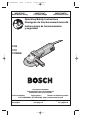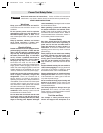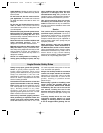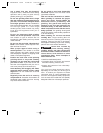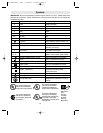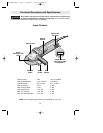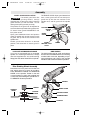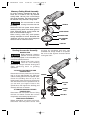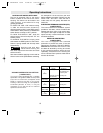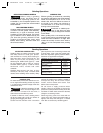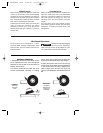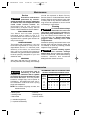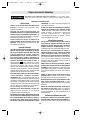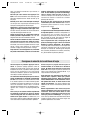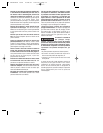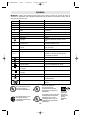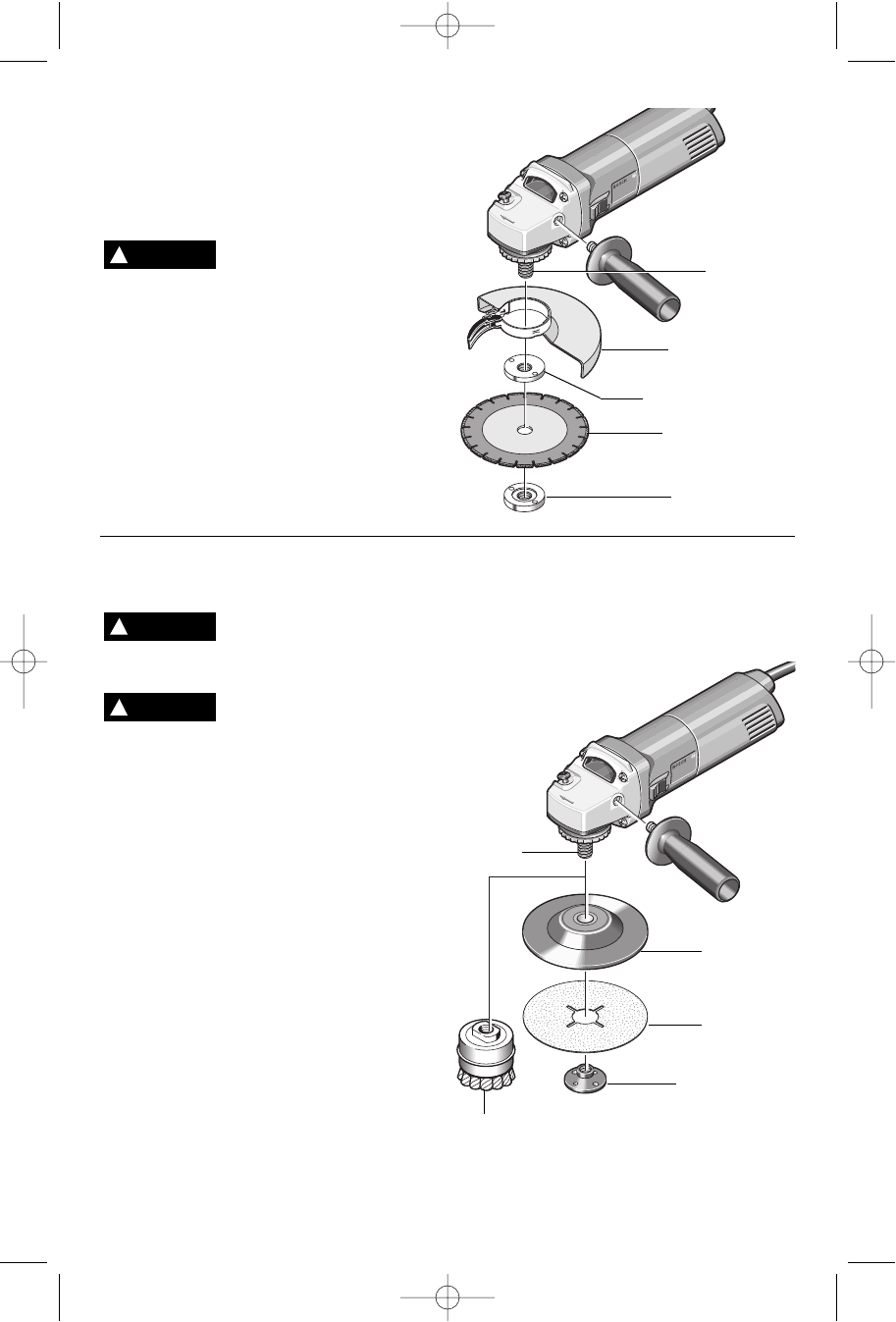
Sanding Accessories Assembly
BACKING PAD
Before attaching a backing
pad be sure its maximum
safe operating speed is not exceeded by the
nameplate speed of the tool.
Wheel guard may not be
used for most sanding
operations. Always reinstall wheel guard
when converting back to grinding
operations.
TO INSTALL BACKING PAD AND
SANDING DISC
Disconnect tool from power source. Set the
tool on its top side (spindle up). Place the
rubber backing pad onto the spindle shaft.
Center the sanding disc on top of the
backing pad. Insert the lock nut through the
disc and thread onto the spindle as far as
you can with your fingers. Press in the
spindle lock, then tighten the backing pad
securely with lock nut wrench.
TO REMOVE BACKING PAD AND
SANDING DISC
Disconnect tool from power source. Using
the lock nut wrench unscrew the nut from
the spindle, while holding spindle lock in.
WIRE BRUSH ASSEMBLY
Before assembling wire brush to this tool,
disconnect from the power source. Wire
brushes are equipped with their own
threaded hub, simply thread on to spindle.
Be sure to seat against shoulder before
turning tool “ON”.
SANDING
DISC
BACKING
PAD
LOCK NUT
WIRE
BRUSH
SPINDLE
!
WARNING
!
WARNING
-8-
Masonry Cutting Wheel Assembly
For cutting masonry materials like brick, tile,
stone, etc., it is best to use a dry diamond
cutting wheel. Use only lock nut and flange
with equal diameters. The wheel guard must
be used with a dry diamond cutting wheel.
Do not use water or other
cooling fluid with this tool
for cutting.
Disconnect tool from power source before
attaching cutting wheel. With wheel guard in
place, assemble flange, cutting wheel and
lock nut as illustrated on page 7.
When cutting, make only small passes
through workpiece at a time. Be aware that
“Kickback” can occur at any time. Keep both
hands on tool for maximum control.
WHEEL GUARD
BACKING FLANGE
DRY DIAMOND
WHEEL
LOCK NUT
SPINDLE
!
WARNING
BM 1609929C33 10/03 10/28/03 2:49 PM Page 8



